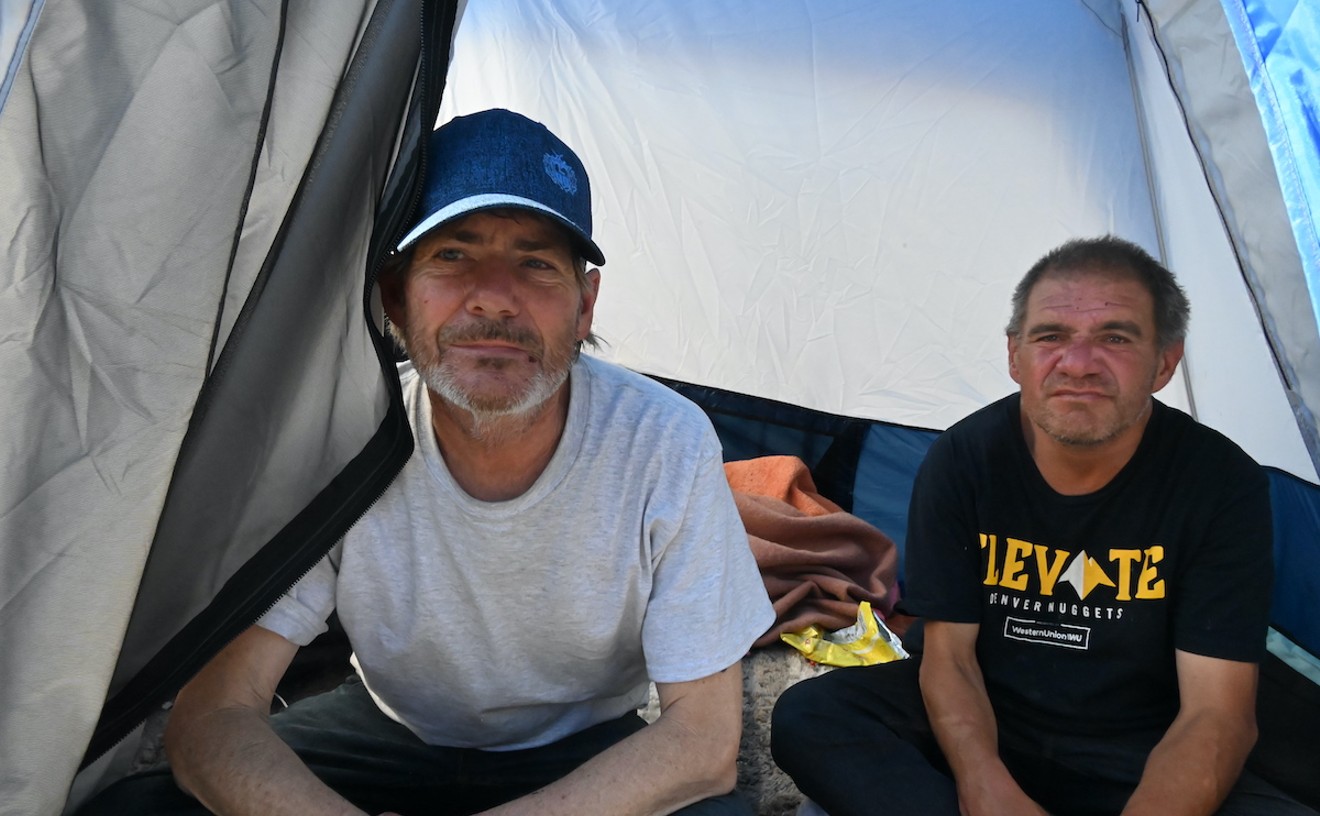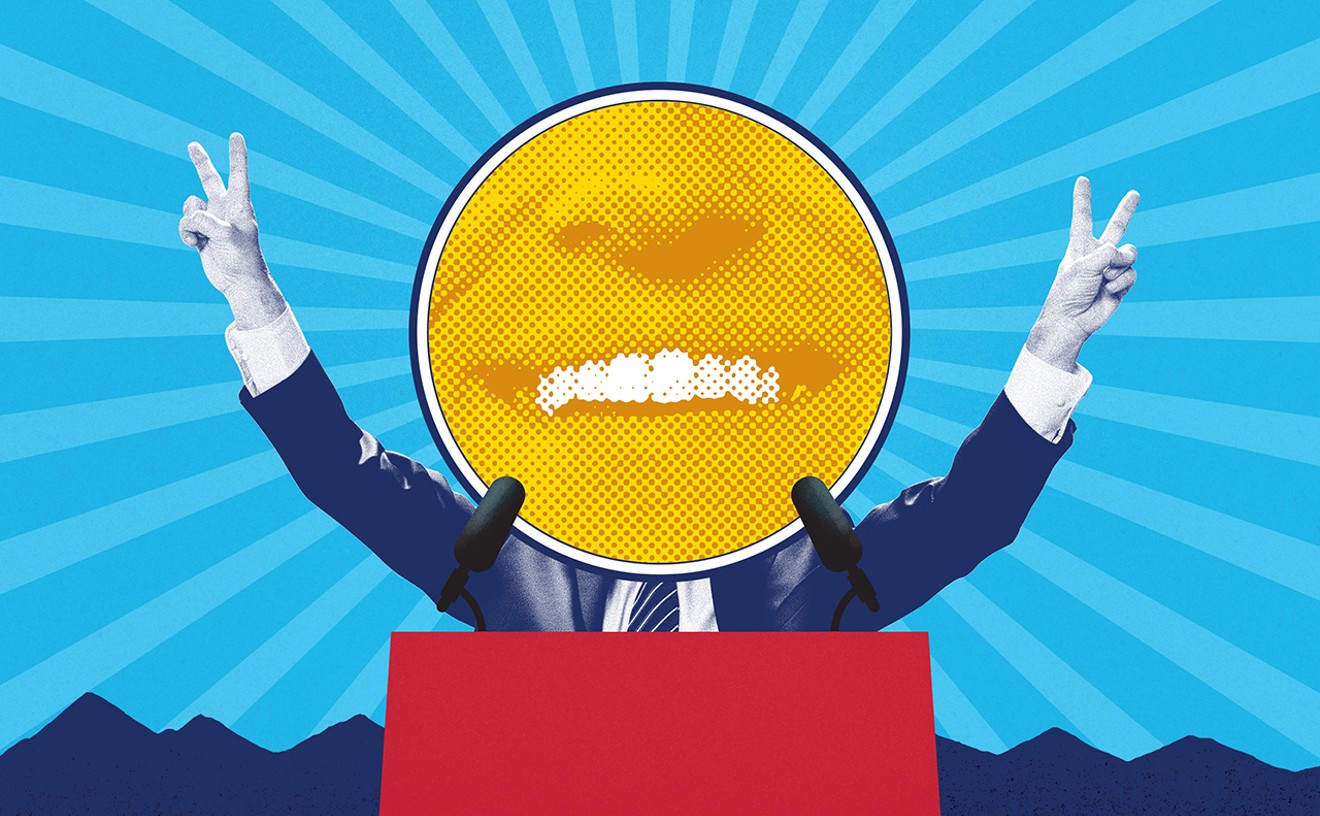Two measures that would have imposed tighter restrictions on Colorado's oil and gas industry have been declared ineligible for the November ballot amid conflicting accusations of fraud and foul play.
Secretary of State Wayne Williams announced this morning that, based on random sampling, neither of the initiatives collected enough valid signatures to make the statewide ballot. For one of the measures, Williams's office has turned over petitions containing "several potentially forged signature lines" to the Office of the Attorney General for further investigation. At the same time, backers of anti-fracking initiatives 75 and 78 have defended the high validity rate of their petitions and charged that the energy industry has spent up to $15 million seeking to "sabotage" their efforts.
The tousle is in stark contrast to the situation two years ago, when two anti-fracking measures made the ballot, with considerable financial and political backing from U.S. Representative Jared Polis — only to be withdrawn after Polis struck a last-minute deal with Governor John Hickenlooper to form a commission that would hammer out more local controls over fracking operations. The recommendations of that panel have been seen as too watered down to suit many fractivists, though, leading to the current efforts to give local governments more authority (Initiative 75) and impose a mandatory 2,500-foot setback around oil and gas rigs (Initiative 78) from homes, hospitals, schools and other sensitive areas.
Industry advocates have argued that the "extreme" proposals would have impacted or prohibited up to 90 percent of drilling operations in the state. Groups behind the measures — which include Food & Water Watch, Greenpeace and other local and national environmental groups — insist that polling data indicates that voters supported the initiatives, particularly 78, by a strong margin. But industry sources outspent the petitioners' campaign by at least 40-1, investing in billboards, radio and television ads denouncing the initiatives. Backers also complained about paid protesters who they say harassed and threatened petition gatherers.
Minutes before the August 8 deadline for submitting petitions, the backers delivered more than 100,000 signatures for each initiative to Williams's office. But since it takes 98,492 valid signatures to qualify for the ballot, the effort had little room for error; typically, petition gatherers bring in twice as many signatures as they need, knowing some will be disqualified. The official review of a random sample of the signatures submitted indicated that around 20 percent of the anti-fracking signatures would be disallowed.
The outcome was hailed by industry interests as a triumph of reason. "Colorado voters recognized that these extreme measures would destroy the state's economy and take away private-property rights," said Karen Crummy, spokesperson for Protecting Colorado's Economy, Environment, and Energy Independence, in a prepared statement.
But backers, who have thirty days to appeal Williams's rejection, say they are considering just such a move, given the notably high validity rate of the signatures that were reviewed. "As we review the ruling, we want to assure our volunteers and supporters that we are as committed as ever to giving the residents of Colorado a say this November on whether their communities can regulate fracking," Tricia Olson, executive director of Yes for Health and Safety Over Fracking, countered in another release. "Today's announcement is not the final action on this issue."
[
{
"name": "Air - MediumRectangle - Inline Content - Mobile Display Size",
"component": "12017618",
"insertPoint": "2",
"requiredCountToDisplay": "2"
},{
"name": "Editor Picks",
"component": "17242653",
"insertPoint": "4",
"requiredCountToDisplay": "1"
},{
"name": "Inline Links",
"component": "18838239",
"insertPoint": "8th",
"startingPoint": 8,
"requiredCountToDisplay": "7",
"maxInsertions": 25
},{
"name": "Air - MediumRectangle - Combo - Inline Content",
"component": "17261320",
"insertPoint": "8th",
"startingPoint": 8,
"requiredCountToDisplay": "7",
"maxInsertions": 25
},{
"name": "Inline Links",
"component": "18838239",
"insertPoint": "8th",
"startingPoint": 12,
"requiredCountToDisplay": "11",
"maxInsertions": 25
},{
"name": "Air - Leaderboard Tower - Combo - Inline Content",
"component": "17261321",
"insertPoint": "8th",
"startingPoint": 12,
"requiredCountToDisplay": "11",
"maxInsertions": 25
}
]











